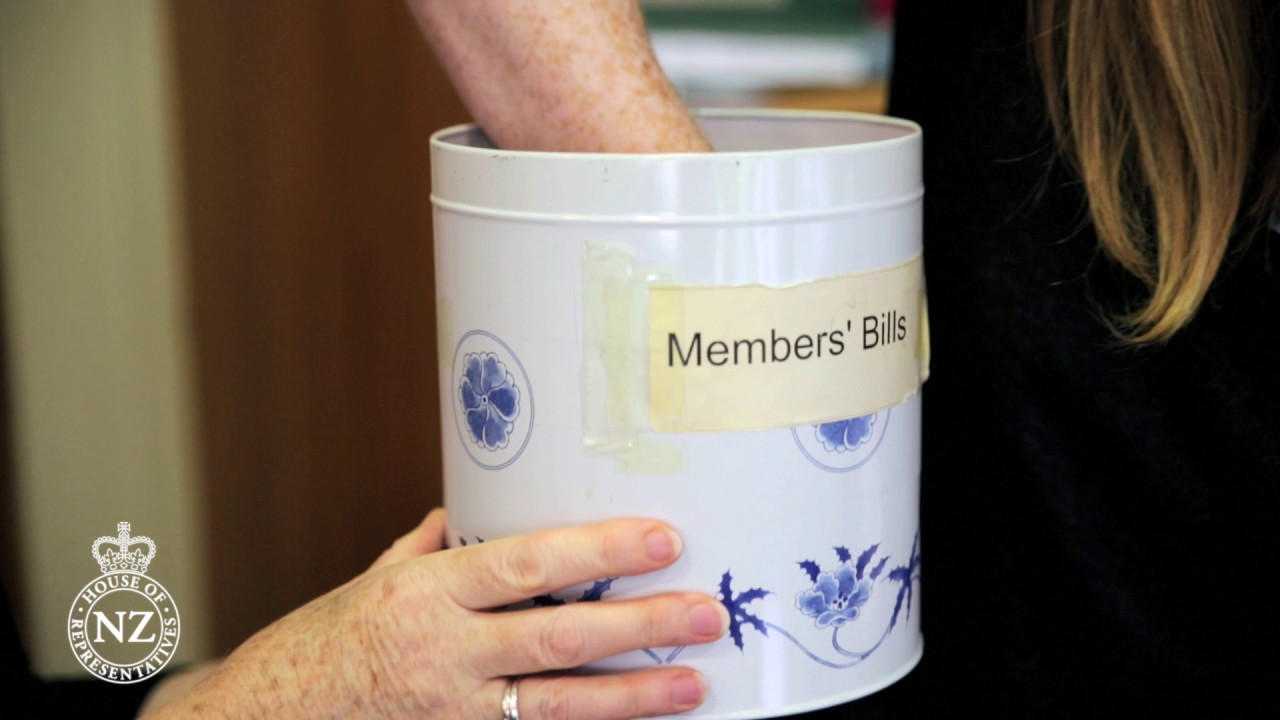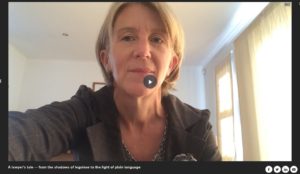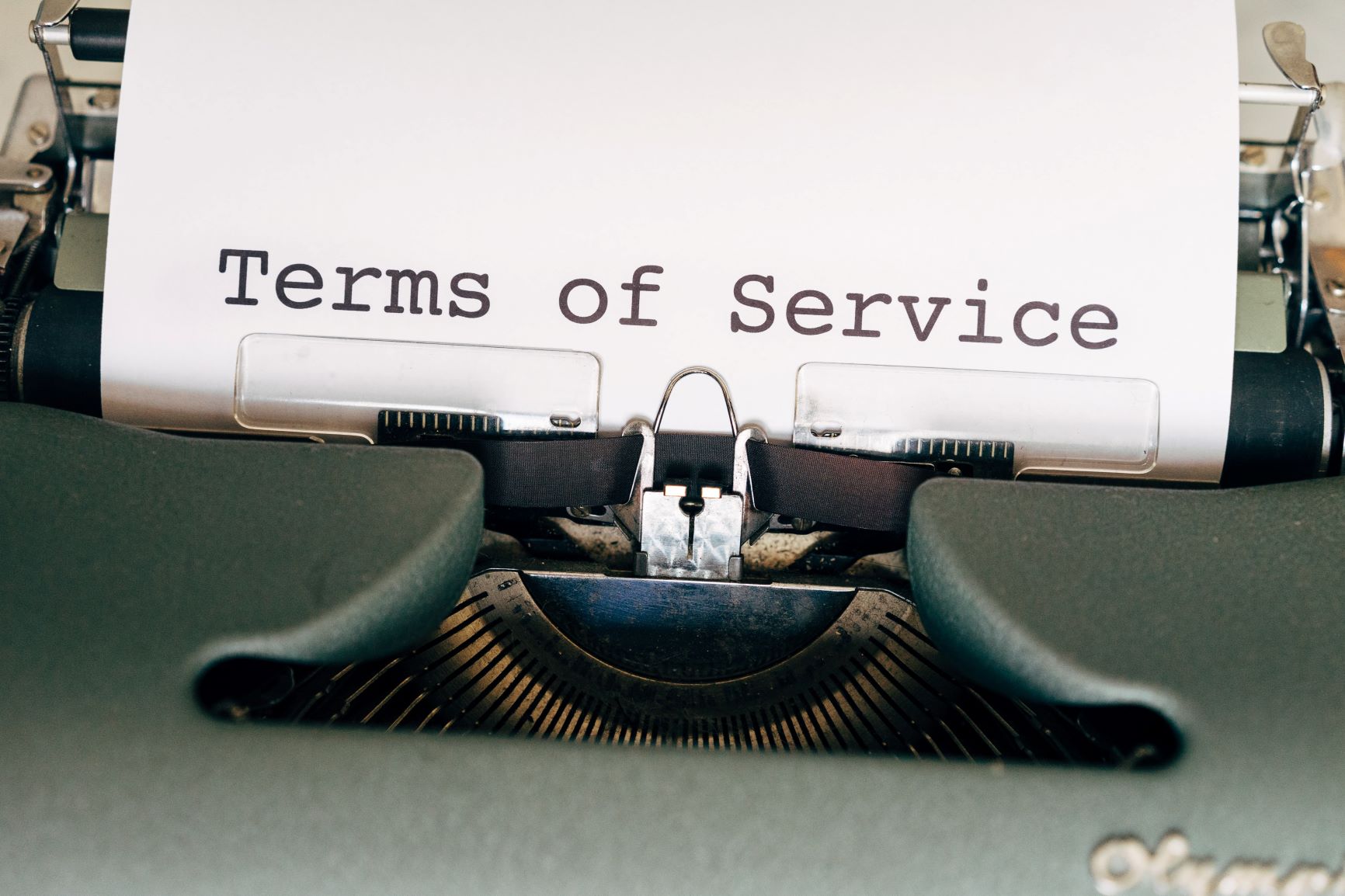
We’re excited to announce the Plain Language Awards are running again in 2022 | Photo by Joshua Hoehne on Unsplash
We’ve been a bit quiet lately, but the rumours are true! Once again we’ll be celebrating Australia and New Zealand’s clearest business communicators at the 2022 Plain Language Awards. So it’s time to start thinking about your entries.
Check out last year’s finalists and winners for inspiration
Get your entries ready to send in between 1 May and 31 July. The categories will be the same as last year’s.
Read about how to enter the 2022 Awards
Check the Awards categories for 2022
This year’s Awards theme is telling your plain language story. Inspire others and be inspired!
View plain language stories in our gallery
An exciting year for plain language with the Plain Language Bill
And while you’ve got your plain language thinking hats on, why not send in a submission supporting the Plain Language Bill? The Plain Language Bill is a private member’s Bill being considered by the New Zealand Parliament. If it becomes law, it will require all government agencies to communicate in plain language.
Discover more about the Plain Language Bill
If you believe government communication in plain language would be good for Aotearoa, we encourage you to have your say by submitting on the Bill. Submissions close on 31 March 2022.
Make a submission on the Parliament website
Or use the handy template created by Write Limited to prompt your thinking.
Visit the Write website and use the ready-made submission template
Anne-Marie Chisnall March 24th, 2022
Posted In: 2022 Plain English Awards, Communications
Tags: 2021 finalists, 2021 winners, 2022 Awards, Plain English Bill, Story

The Plain Language Bill was drawn from the parliamentary biscuit tin on 23 September 2021
We were thrilled to welcome Nelson MP Rachel Boyack as guest speaker at the Plain English Awards ceremony on 14 October 2021. Her speech is below and it’s a great read! Rachel speaks from the heart about her enthusiasm for clear communication and its benefits for New Zealanders. She especially encourages supporters of plain language to support the new Plain Language Bill as it progresses through Parliament.
Welcome by Awards MC James Elliott
Now it’s my pleasure to welcome our guest speaker for the Awards. This is Nelson MP Rachel Boyack. As we said earlier, Rachel’s private member’s bill, the Plain Language Bill, was recently drawn in the parliamentary ballot. So it’s very fitting that Rachel joins us today to be our guest speaker. And with the potential for the Plain Language Bill to become law, New Zealand could join the countries around the world that have a legislative basis for plain language in their government agencies and public communications documents. Thank you for joining us, and welcome Rachel.
Rachel Boyack’s speech
View the video of Rachel’s speech at the Plain English Awards ceremony

Rachel Boyack MP: Champion of plain language
Tēnā koutou katoa. Ngā mihi nui ki a koutou
It is an honour to join you today and to have the opportunity to speak to you about my private member’s bill, the Plain Language Bill. My thanks to the team who have worked so hard to put on these Awards today during a pandemic. It’s no easy feat.
Congratulations to all of the nominees, finalists, and award winners celebrated today. Thank you for your commitment to plain language and your willingness to put yourselves forward for judging. While it is always risky singling out one organisation for praise, as the MP for Nelson, I am pleased to see Cawthron on the list of finalists today. I’m proud to be a trustee of Cawthron, and I acknowledge their commitment to good science communication. The last two years are a stark reminder of why good science communication is so important.
It is somewhat nerve-wracking to be speaking to a group of communications experts about a Plain Language Bill. Since my bill was drawn from the parliamentary biscuit tin, I had been very mindful that all of my communications must be crystal clear. I would like to acknowledge my colleague, Chris Hipkins, who was the original drafter of the Plain Language Bill almost 10 years ago.
As a new MP, I was asked to take on this bill. And there was a reason that I was delighted to do so. Fifteen years ago, I was a fresh young graduate starting my professional career in a small public sector agency in Wellington called the Leadership Development Centre. I was given a role in communications despite having no formal training in this type of work.
My boss, who was a pedant, sent me on a number of plain English courses with Write Limited. The training from Write set me up in my professional career, and has helped me to ensure that the documents and statements I produce are clear and easily understood. The first thing I did after having my bill drawn was to ask my assistant to ring Write and set up a meeting.
I am keen to work with the sector and all of you, the plain language champions across Aotearoa, as my bill progresses. The purpose of my bill is to require public sector agencies to write their documents and their website content using plain language. Agencies will have a plain language champion who will be responsible for training staff and reporting to the Public Service Commission about plain language use in their agency. Members of the public will be able to raise concerns about documents with the plain language champions.
Plain language is a democratic right. My goal is for more people to have good communication from government agencies so that we can all participate fully in our democracy. I would love your help turning this bill into law. As the bill progresses through Parliament, I am keen to hear from the sector about how we can make the law work better. This is also an opportunity for us to speak out about the benefits of plain language in the public and private sector. So let’s use it.
Thank you again for inviting me to speak to you today. Congratulations to the award winners.
Tēnā koutou, tēnā koutou, tēnā koutou katoa
Meet the Awards winners for 2021
Becoming a country of clarity: more about the Plain Language Bill
Plain Language Bill aims to end bureaucratic bluster
Plain Language Bill not just about ‘dumbing things down’, coach says
Anne-Marie Chisnall November 4th, 2021
Posted In: 2021 Awards ceremony
Tags: champions, clear writing, Plain English Awards, plain language, Plain Language Bill

Use your superpowers and spread the word about plain language | Photo by Austris Augusts on Unsplash
Lynda Harris, Write and WriteMark CEO and Awards founder, spoke at the Plain English Awards ceremony on 14 October 2021. Here is her introduction to the premier award of Plain English Champion — Best Organisation. The Champion category is sponsored by Write Limited.
So here we are in the middle of the Champion category with all this suspense before we announce the premier Award! For that reason I have been told to be very brief!
It’s no secret that the Champion category is my favourite. Not only because it honours such wonderful people and projects, but because the concept of being a Champion is absolutely inherent in the whole concept of the Awards.
Even though as a country we are so much better at plain language now, we still need to push for it. And the people who do the pushing, inspiring, and advocating are the champions. When you’re persuading a manager or a senior leader that clarity and connection is worth the time and effort, you’re being a champion. When you’re writing a business case for a plain language makeover, you’re being a champion. If you’re at this ceremony, you’re a champion.
So to all you champions, thank you!
Use your superpowers to make the world a better place
Years ago in 2007 we made a little animated video about a superhero who had P on his cape. That was P for PLAIN. Our PLAIN superhero swooped around workplaces converting people into superheros. Lots of plain language champions, in other words. It was a bit corny to be fair, but I often think that as plain language advocates and champions we are wearing a metaphorical superhero outfit.
I actually asked Google the defining qualities of a superhero and it helpfully told me that they were super strength, flight, telepathy, telekinesis, super speed, super intelligence, and super gadgets.
Well, you can take from that what you will. But the best bit that rings true is that they typically use their powers to help the world become a better place.
You are already using your superpowers to do just that. But maybe you never thought of it that way. Whether you’re a bold visionary, a passionate campaigner, or a quiet doer, you have qualities that the world needs more of. You have stories to tell about people who need clarity and connection. And you have the skills to inspire others to be champions like you.
So please take stock of your superpowers, don that cape, gather others around you, and continue to champion the cause for human-centred writing. Write’s slogan is ‘using the power of words for good’. Together we are all doing just that.
Congratulations to the winners of the Best Organisation Award!
Read about the winners of the Champion Best Organisation Award
Anne-Marie Chisnall October 20th, 2021
Posted In: 2021 Awards ceremony, 2021 Plain English Awards
Tags: 2021 Plain English Awards, Best Organisation, Champion, clear communication, power of plain English

The Plain Language Bill starts its journey | Photo by Sulthan Auliya on Unsplash
Remember the Plain English Awards ceremony in 2018? As well as being the last time we held the full Awards, this inspiring event saw guest speaker Justin Lester, Wellington mayor at the time, describe Wellington as the City of Clarity.
Meet our guest speaker for 2021
Now New Zealand has the chance to become a ‘country of clarity’. It’s fitting that our guest speaker for the Awards ceremony is Nelson MP Rachel Boyack. Rachel’s private member’s bill, the Plain Language Bill, was recently drawn in the ballot.
Why country of clarity? With the potential for this bill to become law, New Zealand could join the countries around the world that have a legislative basis for plain language in their government agencies and public communications.
What’s the Plain Language Bill all about?
The Bill promotes the use of plain English in official documents and websites. Comprehensible information from government organisations is a basic democratic right. Plain English must become the standard for all official public and private communication in New Zealand. This Bill requires the New Zealand Government to start making that happen.
A champion of plain language
Rachel is eloquent when talking about the benefits of plain language for everyone in the community. She’s excited to be championing a cause she believes in through supporting the Bill.
Rachel explains:
It’s not about dumbing down the language but making it easier for people to understand.
We’re honoured that Rachel has kindly agreed to be our guest speaker in spite of her busy schedule. We look forward to hearing her contribution to the Awards ceremony.
More about our guest speaker

Rachel Boyack MP: Champion of plain language
Rachel lives in Nelson with her husband Scott, and before entering Parliament she worked as a health and safety coordinator for the Anglican Diocese of Nelson.
In her previous role as an organiser with FIRST Union, she negotiated collective employment agreements with large companies like Nelson Pine, lifting wages for hundreds of workers in the Nelson region.
Rachel has volunteered on the Boards of Nelson Women’s and Children’s Refuge and the Nelson Environment Centre. She was the Chair of Labour’s Policy Council leading up to the last election.
A trained singer, she has a Music Degree from the University of Auckland and was a member of the New Zealand Youth Choir. She also enjoys spending time at Nelson’s beautiful Tahunanui Beach with Scott and their Labrador, Phoebe.
Anne-Marie Chisnall October 7th, 2021
Posted In: Communications

Lots of people work behind the scenes to make technical communication work well | Image by Wilfried Pohnke from Pixabay
Thanks to Write consultant and technical communicator Earnsy Liu for this blog post
2020 was a long year. The world was on tenterhooks, wondering how long COVID-19 would be around. Everyone hunkered down, made sourdough bread, and hoarded toilet paper. People got used to life on Zoom, and sometimes discovered cat filters the hard way.
Some workplaces changed tack completely and manufactured new products or offered new services. Other workplaces kept doing what they always did, but in different ways.
Your chance to get the recognition you deserve
Whichever category your workplace fell into, you probably did something differently. If you wrote any technical information you’re particularly proud of, the Awards judges want to hear from you.
Tell us about your clear procedures
Tell us about the new procedures you wrote, so that essential work could continue — safely distanced — through the pandemic. Procedures so clear and easy to use, that your colleagues could carry out complex procedures without missing a beat.
Tell us about your user-friendly online help
Tell us about the chunks of online help files you rewrote, so that non-techy customers could find answers to techy questions easily. Super easily, even though your customers came from diverse language and educational backgrounds.
Tell us about your new technical specifications
Tell us about the new technical specifications or instructions that you developed for your company’s new products in double-quick time. Maybe you wrote them while grappling with MadCap Flare or Framemaker, and collaborating for the first time in Confluence too!
Show us what you’ve done as an expert technical communicator
Send in up to five samples of your work. Showcase your plain language skills (hint: pick samples that show off your structure and layout too).
Tell us the context of your documents, including their purpose and audience.
Read more about our Best Plain English Technical Communicator category
Need more encouragement to enter?
Check out silver sponsor TechCommNZ’s fun video ‘10 reasons to enter the 2021 Plain English Awards’ in our gallery.
View TechCommNZ’s video
Anne-Marie Chisnall July 15th, 2021
Posted In: 2021 Plain English Awards, Best Technical Communicator, Plain English Awards
Tags: Best Plain English Technical Communicator, clear communication, TechCommNZ, technical communication, technical communicator, technical writing

Our judges explain why they love to be involved in the Plain English Awards | Photo by Anastasia Zhenina on Unsplash
When we surveyed our judges for their top tips for a winning Awards entry, we got some lovely feedback about why they love to judge the Awards. We thought you might like to read it too. Perhaps some of the thoughts here will inspire you to celebrate plain language in your own organisations. And you might feel more inclined to demand clear communication from the organisations you encounter in your daily life.
Our judges love celebrating the use of plain English
Our judges felt that that the Plain English Awards are a fantastic way of encouraging and celebrating plain language in organisations.
As an ardent supporter of clear writing, I’m delighted to support them.
I think we should encourage people to excel in this area.
It’s fun, interesting, and it helps me with my mission: plain language as a human right, world wide!
I’ve been leading workshops on writing in five countries for more than 30 years. Judging the competition has always seemed a natural complement.
I love what Write does and stand for and I think any opportunity to promote plain language is a good opportunity.
It’s incredibly important to recognise good writing in and by organisations because they serve as an example to other organisations. In addition, New Zealand’s Plain English Awards have been a model and inspiration for other awards. I learn so much each time I judge.
To help out the plain English community. To keep in touch with the standard of writing across Aotearoa. And I suppose it’s good to have my name connected with the Awards. It’s certainly ‘on brand’!
From the shadows of legalese to the light of plain language
One of our judges, Jacqueline Stephenson (now a legal and business proofreader and plain language editor), shares some reflections on her years as a practising lawyer in the UK and New Zealand. Why did she write the way she did? And what does plain language in legal writing mean to her now?

Watch Jacqueline Stephenson’s video in our gallery
Awards founder Lynda Harris asks us all to demand clear communication
When Lynda Harris spoke at the Awards ceremony in 2018, she encouraged everyone present to demand clear communication, whether as a writer or a consumer.
So, believing what you do about the power of plain language, my question to you as both writer and consumer is ‘what action can you take that is bigger and bolder than before?’ How can you make your sense of care count?
Read Lynda’s inspiring words from that speech in our 2-part blog.
Care — the shortcut to plain language (part 1 of Lynda’s speech)
Care into action — rewrite or reject! (part 2 of Lynda’s speech)
Anne-Marie Chisnall July 5th, 2021
Posted In: 2021 Plain English Awards, Communications, Judges, Plain English Awards
Tags: clear communication, democracy, improved writing, insights, judges, leadership, plain English, Trophy Tips Seminar

The judges are looking for easy-to-read legal documents | Photo by Markus Winkler on Unsplash
What’s the number one thing a reader of a legal document is looking for? We’d like to suggest that it’s clarity! Readers of any writing — including legal documents — are looking for a document they can read once, understand, and act on.
Read the full version of a definition of plain language by the International Plain Language Federation
The award for Best Plain Language Legal Document celebrates legal writing that gets its point across without that legal flavouring that we’ve seen so often. How often have you encountered words like these in a legal document — furthermore, notwithstanding, prior to, accordingly? And what about commence, expedite, or terminate?
Let’s see some legal documents that push the boundaries of ‘plain’
The winners of the Best Plain English Legal Document in 2018, Draper Cormack, pride themselves on communicating clearly and directly with their clients. And the judges agreed that they were doing a great job of clear communication with their terms and conditions. The judges said:
This document is written in a way that gives the intended audience a strong chance of understanding it at the first reading, and in the way the drafter wants them to. It’s clear, direct writing, using as few words as needed, and avoids being ambiguous, lengthy or technical writing and complex sentences.
Overall, it is a good example of what you can do with a legal document.
The other finalists, Infinite Possibilities and Hatch, also made clarity a key feature of their communication with their customers.
Check out a legal document with a difference in the client relationship agreement from Infinite Possibilities
And take a look at Hatch’s terms too. The judges said:
Overall this document shows what plain English can achieve in the law. The target audience is written to in a language it can understand and act upon with confidence. The flow of ideas is logical and the design is clear and concise. [The document’s audience] would easily and quickly grasp its implications.
What the judges are looking for
The judges are looking for the best example of a legal document written in plain language. You can enter a document used in legal contexts or for legal purposes. Examples include contracts, agreements, terms and conditions, notices, deeds, judgments, legal opinions, and so on. The document may cover a legally enforceable Act, process, obligation, or right.
Here are the judging criteria. And remember the judges will also be keen to know if you’ve evaluated your document in any way, such as carrying out document user-testing.
Purpose
The purpose of the document is clear at the start, and the content supports the purpose of the document.
Structure
The structure is clear and logical to the reader.
Headings and main messages
The headings are informative and clearly signpost the main messages.
Paragraphs
The paragraphs are mostly short and focused on one topic.
Sentences
The sentences are mostly short and straightforward.
Words
The words are precise and familiar. Technical terms are explained.
Layout and presentation
The layout helps the reader absorb the messages quickly and easily.
Watch videos from our judges of the legal category in our gallery:
More about the Best Plain Language Legal Document category
Anne-Marie Chisnall June 9th, 2021
Posted In: 2021 Plain English Awards, Communications, Industry awards, Legal writing, Plain English Awards
Tags: 2021 Plain English Awards, Best Legal Document, clear communication, clear thinking, clear writing, improved writing, Legal writing, legalese, writing for the public

We’re excited to announce that entries are open! | Photo by James Lee on Unsplash
The Awards are officially open for entries in all categories. After a break in 2020, the Awards are back for 2021 — and they’re better than ever! We all saw the amazing benefits of clear and plain communications from the Government and health agencies. This heightened awareness of clear communication has set the scene beautifully for the return of the Plain English Awards.
Here’s what you need to know about the Awards in 2021. We’ve got a new unifying theme for the Awards, a combination of new and familiar judges, and all your favourite categories.
Tell the story of your plain language project
This year we’ve introduced a Story theme — and we’re offering you the chance to share your plain language stories through our video gallery. We’re particularly looking for people in workplaces to share stories about the benefits of their plain language projects. No project is too big or too small!
These stories will inspire others to embrace the benefits of plain language for organisations and their customers. We hope the gallery will become a go-to resource for people to get plain language inspiration.
Our judges and sponsors are joining in the fun as well. You can share a video without needing to enter the Awards. But we hope you’ll feel inspired to enter once you read about the available categories.
Check out the first videos in the gallery
Meet our judging panel
From Dunedin to Denver, Gisborne to Edinburgh, this year’s judging panel is made up of plain language experts from around New Zealand and the world. You’ve met some of them before and others are joining us for the first time in 2021. Together they make up an experienced and insightful team of plain language pros!
Find out more about this year’s judges
Choose your Awards category and get your entry ready
The Awards have a range of categories to suit almost every type of document (and websites).
If you’re starting off or pressed for time, you might consider entering the short and sweet Best Plain English Sentence Transformation. If you’ve transformed a whole document, you might be ready for the Best Plain English Turnaround. You can enter a Best Plain English Document or Website — with a choice of public or private sector.
For specialist business documents, you’ll find a Best Plain English Legal Document category and Best Plain English Annual Report. We’re seeing some of the finest examples of these documents coming through, with the quality of entries rising every year.
Specialist technical communicators have a category just for them. And those working on a team project or an organisation-wide project can enter the Champion categories.
Discover whether you’re a contender for the Champion category
Get some inspiration for the Sentence Transformation category
Review all the categories and find out how to enter
Nominate a best or worst communication
The Awards also include two categories that any member of the public can nominate communications for, to be judged by our People’s Choice judging panel. These are the People’s Choice Best Plain English Communication and the Worst Brainstrain Communication categories. These categories are always lots of fun — we love giving a voice to all of New Zealand.
Read about the People’s Choice in 2019
Get involved in the 2021 People’s Choice awards
Anne-Marie Chisnall May 31st, 2021
Posted In: 2021 Plain English Awards, People's Choice awards, Plain English Awards
Tags: Best Plain English Communication, clear communication, clear writing, judges, People's Choice, People's Choice Awards, plain English, Plain English Awards, Worst Brainstrain

The Champion Best Organisation leads the way for clear communication | Photo by Joshua Golde on Unsplash
We asked Lynda Harris, Awards founder and CE of our principal sponsor Write, why she’s so excited about the Champion categories in the Plain English Awards.
First of all, what do we mean when we talk about an organisation being a plain language champion?
The Plain English Champion category is my absolute favourite! The title implies two strong, equally important concepts connected with the word ‘champion’. Most obviously it means being ‘the winner’ — the best, the highest achiever, the standard-setter, the model for others to follow. And we applaud that!
But also embodied in the title of this category is the concept of being an advocate — being a champion for a cause. Plain language champions believe in the power of clarity and are proud to share their ideals with the world.
What are some of the characteristics that set a champion organisation apart?
An organisation that wins the Plain English Champion category has some stand-out features that truly do set it apart. A champion organisation has shown evidence of a deliberate, focused, consistent choice across the whole organisation to use plain language. This means they make their expectations clear from the top.
The chief executive and senior leaders of a champion organisation talk about the ‘why’ of plain language. They and their management teams encourage and support others to adopt a clear style of communicating throughout the organisation. They promote the connection between clarity and their organisation’s values. (How often have you seen a company say they’re customer-focused, and then tried to work your way through a difficult form or a jumbled website?)
Champion organisations celebrate the benefits of clear communication — things like greater job satisfaction and improved workplace culture, or better customer retention and a stronger reputation for their business.
What do you think the judges will be looking for in the winning portfolio?
Evidence is key to a winning portfolio! The judges will be looking for evidence of a wholehearted commitment to making plain language the norm across the whole organisation. That sounds easy but means a lot.
In a plain language organisation, you’ll find evidence that the CEO and senior team have drawn a line in the sand and set a strong expectation that:
- the reader rules! Everyone considers their reader in every communication, both internal and external
- staff learn what good looks like — everyone writes to an agreed plain language standard
- senior people show the way — the CEO and all managers set an example and model plain language
- staff have help — they can easily find helpful resources and champions who can help
- new documents are clear and reader-friendly
- feedback and measurable results support the change to plain language.
What this evidence all adds up to is that plain language is woven into the fabric of the organisation.
Why does Write sponsor this category?
You can see that everything about this category is dear to Write’s heart. Our mission is to help organisations and individuals get more value from their daily investment in business communication. When we fulfil our mission, we help build a fairer, more respectful society.
We see the Plain English Awards as another way we can promote the benefits of clear communication. And the Champion category is the one that allows us to celebrate other organisations that are on a similar path to us.
Read about the purpose of the Plain English Awards
Preparing your Champion entry
Read about the criteria and prizes for the Champion categories
Read about other clues that your organisation is a champion of clear communication
Anne-Marie Chisnall May 19th, 2021
Posted In: 2021 Plain English Awards, Judges, Plain English Champion
Tags: Champion, clear communication, leadership, plain language culture, recognition

Are you the Champion we're looking for? Photo by Clark Tibbs on Unsplash
Are you one of our award-winning plain language Champions? After a break of almost 3 years, our premier Champion categories are back: Best Organisation and Best Individual or Team. The Award for Best Organisation is highly sought-after and you’ll join an elite band of past winners.
We know for sure that the judging team is looking forward to hearing about your plain language project. But how do you know whether the time is right to enter the Best Organisation category?
Here are five clues to help you decide if it’s your organisation’s time to shine. If any one of them is true, we recommend you enter!
1. Your organisation champions and celebrates clear communication
Clear communication is something your organisation values and rewards. Your leadership team walks the talk, promoting the benefits of clear communication throughout your organisation. You may even have gone the extra mile by working towards an external mark of quality like the WriteMark or WriteMark Plus.
Your internal documents, such as brand guidelines, policies, and newsletters, are written in plain language. Role descriptions emphasise the need to write clearly. Perhaps you even have formal KPIs for using plain language.
Let your industry peers know you’re a leader by entering the Champion category.
2. You’ve noticed better business results from clearer communication
You’ve got case studies or numbers that show improvement. Achieving a measurable return on your investment in business writing is evidence of Champion performance.
You recognise writing is more than an everyday activity in business — it can be a way to improve business success.
If you’ve cracked it, you deserve a medal!
3. You’ve had great feedback from customers about your communication style
Your customers value the way you communicate. Getting praise from customers for using plain language is praise indeed! People don’t offer praise lightly. They’re much more likely to complain about poor communication — or to say nothing at all.
Great feedback for your communication style shows you’re getting your message across in a way your customers appreciate.
We’d like to hear what brought about that success — and to tell the world about it!
4. You train your people in better business writing
Organisations that commit to a plain language culture offer their people resources and training. Writing in plain language takes skill and effort.
You train your staff to write clearly, which gives them a step up. They enjoy their writing more, and they write more efficiently.
Good on you for giving your people the tools they need to write well. That’s worth celebrating too!
5. Your organisation encourages peer review of print and online content
Peer review at key stages of a writing project is expected. People in your organisation seek out peer review as they can see the value in another person’s critique. Your peer review process uses a checklist or standard and is part of a defined process to achieve quality.
Reviewing and feedback can take place through user-testing too. Do you regularly seek feedback from real readers on your communications?
Good systems and processes are key to a Champion mindset. Enter the Awards and get some well-deserved external recognition for your work.
Preparing your Champion entry
Find out how to enter our Champion categories
Read the criteria for our Champion categories
Anne-Marie Chisnall May 5th, 2021
Posted In: 2021 Plain English Awards, Communications, Industry awards, Plain English Awards, Plain English Champion
Tags: 2021 Plain English Awards, Best Organisation, Champion, clear communication, clear writing, Industry awards, Plain English Awards, Plain English Champion














